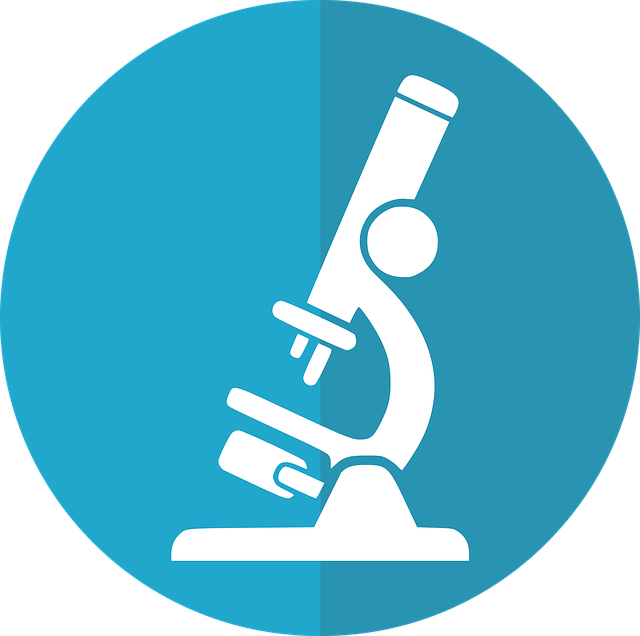Translation services for UK Research and Development (R&D) documents are critical for international collaboration and regulatory compliance. They ensure that all non-English materials, from clinical trial outcomes to grant applications, are accurately translated into English and meet the high standards required by UK authorities. These specialized translation services are essential for R&D projects seeking approval or patent protection in the UK, as they provide precise translations of technical terms and scientific data, ensuring the authenticity and clarity of the information submitted. By facilitating seamless communication across languages, these services enable researchers to overcome linguistic barriers, collaborate effectively with international peers, and contribute to groundbreaking advancements in fields such as medical devices and renewable energy technologies on a global scale. The use of certified translators who understand the nuances of both language and scientific context is paramount for the success of any R&D project submitting documents to the UK.
navigating the complexities of UK Research and Development (R&D) necessitates precise documentation. This article delves into the critical role of certified translations within this field, highlighting the stringent requirements and the importance of accurate language representation to uphold the integrity of R&D papers. We explore the essential elements of R&D documentation, the nuanced process of obtaining certified translations, and the legal landscape governing these documents in the UK. By understanding the intricacies involved and leveraging specialized translation services for UK R&D documents, researchers can ensure their work meets the necessary standards and complies with regulations, paving the way for successful projects and international collaboration.
- Understanding the Importance of Certified Translations in UK R&D Contexts
- Overview of UK Research and Development Documentation Requirements
- The Role of Professional Translation Services for R&D Papers
- Key Considerations When Selecting a Translation Service Provider
- Types of Documents Commonly Required for UK R&D Applications
- The Certification Process: Ensuring Authenticity and Accuracy
- Legal and Regulatory Requirements for Translated R&D Documents in the UK
- Evaluating Translation Service Providers: Factors to Consider
- Case Studies: Successful UK R&D Projects That Required Certified Translations
Understanding the Importance of Certified Translations in UK R&D Contexts

When engaging in research and development within the United Kingdom, it is imperative to ensure that all documentation is accurately conveyed, especially when dealing with multilingual content. UK Research and Development documents often require precise translation services to facilitate international collaboration, patent applications, and compliance with regulatory standards. Certified translations play a pivotal role in this context, as they provide an official version of the document that meets legal requirements. These translations are crucial for R&D entities looking to present their findings or apply for patents in non-English speaking countries or even when dealing with multinational partners within the UK. A certified translation is executed by a professional translator who is accredited and recognized by relevant authorities, ensuring that the translated content not only captures the original meaning but also adheres to legal standards, which is often a prerequisite for official records and legal submissions. Utilizing specialized translation services for UK Research and Development Documents can thus prevent misunderstandings or rejections due to language barriers, safeguarding the integrity and success of R&D projects on both national and international platforms. It is not just about translating words but ensuring that the technical, scientific, and often complex content is accurately represented in a manner that maintains its original context and intended purpose. This is where professional translation services for UK Research and Development Documents become indispensable, offering meticulous attention to detail and expertise in both the subject matter and language nuances.
Overview of UK Research and Development Documentation Requirements

navigating the UK’s Research and Development (R&D) landscape necessitates a meticulous approach, particularly when it comes to documentation. For entities seeking to engage with the UK’s innovative ecosystem, submitting R&D papers is a pivotal step. These documents must accurately reflect experimental processes, findings, and methodologies. For non-English documents, securing professional translation services for UK Research and Development Documents becomes paramount. Such translations ensure that the content aligns with UK standards, is comprehensible to stakeholders, and meets the stringent requirements set forth by governmental bodies, funding organisations, and academic institutions. Utilising expert translation services not only facilitates clear communication but also demonstrates compliance with legal and regulatory obligations. This attention to detail can be critical in the successful validation of R&D work, thereby avoiding potential delays or rejections due to language barriers. Translations must be precise, authoritative, and certified for authenticity, bridging the gap between international research contributions and the UK’s R&D community.
The Role of Professional Translation Services for R&D Papers

When submitting research and development papers in the UK, precision and accuracy are paramount, especially when these documents require translation to facilitate international collaboration or application for patents. In such instances, opting for professional translation services for UK Research and Development Documents is not just a convenience but a necessity. These specialized services ensure that the intricate details of scientific papers are accurately conveyed in the target language, maintaining the integrity of the research findings. The nuances of technical terminology within R&D papers often present challenges that general translators cannot adequately address. Specialized translators with expertise in both the subject matter and linguistic proficiency are crucial for a seamless translation process. They bring a deep understanding of complex scientific concepts and the context in which they operate, thereby providing translations that resonate with experts across different linguistic domains. This level of specialization minimizes the risk of misinterpretation and ensures compliance with regulatory standards, which is particularly important when submitting to peer-reviewed journals or government bodies. By leveraging professional translation services for UK Research and Development Documents, researchers can confidently share their findings with a global audience, fostering innovation and advancing scientific knowledge across borders.
Key Considerations When Selecting a Translation Service Provider

When engaging a translation service provider for your UK Research and Development (R&D) documents, accuracy is paramount. The chosen translator must possess specialized knowledge in both the scientific field relevant to your research and the linguistic nuances of the target language. This dual expertise ensures that technical terms, complex concepts, and critical data are conveyed precisely, maintaining the integrity of your R&D papers. Look for providers with a proven track record in handling similar UK R&D documents, as their experience can significantly reduce the risk of miscommunication or errors that could compromise your project’s success. Additionally, consider the provider’s familiarity with the regulatory requirements and standards pertinent to UK R&D submissions, ensuring that your translated documents will meet all necessary compliance criteria. A reliable translation service provider should also offer certifications for their translations, which are often required for formal submissions or to be recognized by international bodies. By carefully vetting providers based on these key considerations, you can select a partner that will facilitate clear and accurate communication of your R&D findings across borders.
Types of Documents Commonly Required for UK R&D Applications

When applying for research and development (R&D) funding or approval in the UK, a variety of documents are required to support your application. These documents often need to be presented in English, regardless of their original language, to ensure clarity and compliance with UK regulations. In such instances, certified translation services for UK Research and Development Documents play a pivotal role. They facilitate the understanding of technical data, clinical trial results, patents, and other relevant materials by providing accurate translations that meet the high standards set by UK research bodies. The types of documents commonly required can include project proposals, which outline the objectives, methodology, and expected outcomes; financial statements or budgets to demonstrate funding availability; and academic or professional credentials of team members. Additionally, research findings, previous studies, and any intellectual property documents must be translated if they are not originally in English. The translation must be certified to confirm its authenticity and accuracy, which is crucial for the application process. Utilizing professional translation services ensures that all necessary R&D documents are accurately conveyed, thereby increasing the likelihood of a successful application submission and avoiding potential delays due to language barriers or miscommunication.
The Certification Process: Ensuring Authenticity and Accuracy

When submitting research and development papers in the UK, it is imperative that all supporting documentation, particularly those in foreign languages, are accurately translated to ensure clarity and compliance with regulations. Certified translation services for UK Research and Development Documents play a pivotal role in this process. These specialized services not only translate text from one language to another but also provide official certification that verifies the authenticity of the translation. The certification process involves a series of stringent checks by professional linguists who ensure the translated content aligns precisely with the original document. This step is crucial as it confirms the accuracy of the translation, which is essential for the assessment and validation of R&D work by UK authorities. The certified translator affixes their signature and seal to the document, attesting to its faithful representation in the target language. This certification is often required to meet legal and administrative standards, particularly when the documents are to be used as evidence in official proceedings or submitted alongside grant applications and patents. Opting for such translation services is a critical step for researchers and institutions alike, facilitating smooth interactions with UK regulatory bodies and international partners, thereby upholding the integrity of the research process.
Legal and Regulatory Requirements for Translated R&D Documents in the UK

When submitting research and development (R&D) documents in the UK, particularly for regulatory approval or patent applications, it is imperative to present all non-English materials in certified translations. The legal and regulatory framework governing R&D documentation specifies that any foreign language data must be accurately translated and accompanied by official certification to ensure its authenticity and compliance with UK standards. Certified translations for UK Research and Development Documents are not just a formality; they are a critical component of the application process, as they facilitate a clear understanding of the research findings by regulatory bodies, patent offices, and other stakeholders. These translations must adhere to stringent quality standards set forth by professional translation services for UK R&D Documents, which include not only linguistic precision but also an understanding of the scientific terminology and context. The certified translator’s role is to provide a true representation of the original document in English, ensuring that all technical terms, data, and findings are conveyed accurately and are legally recognized by UK authorities. This process is essential for the R&D documents to be considered valid within the regulatory context, thus avoiding potential delays or rejections due to non-compliance with translation standards.
Evaluating Translation Service Providers: Factors to Consider

When seeking translation services for UK Research and Development (R&D) documents, it is crucial to evaluate potential service providers with a discerning eye. The translations must be technically accurate, reflecting the specialized nature of R&D papers. Firstly, consider the provider’s expertise in the scientific field; a firm well-versed in UK R&D jargon and methodologies will ensure your documents are conveyed with precision. Additionally, scrutinize their credentials and certifications, as accredited translators are more likely to produce work that meets both industry and regulatory standards. Quality assurance processes within the translation service should also be a priority, as these can safeguard against errors that could compromise the integrity of your research findings. Language proficiency is paramount, but so too is the translator’s grasp of the specific terminology used in UK R&D. Lastly, assess the provider’s track record with similar projects, ensuring they have a history of successful collaborations with research institutions or companies within your field. This due diligence will facilitate the selection of a translation service that can deliver certified translations of your UK R&D papers with the highest level of accuracy and professionalism.
Case Studies: Successful UK R&D Projects That Required Certified Translations

UK-based research and development (R&D) projects often push the boundaries of innovation, necessitating collaboration across different countries and languages. A prime example is the development of a novel medical device that required extensive testing in multiple European nations. The project hinged on the seamless translation of technical documentation and clinical trial results. To navigate this linguistic complexity, the team employed specialized translation services for UK R&D documents, ensuring that all findings were accurately conveyed in the target languages while maintaining regulatory compliance. This meticulous approach allowed for the successful approval and implementation of the medical device, underscoring the critical role of professional translation in international R&D success stories.
Another case in point is the advancement of a cutting-edge renewable energy technology, which involved researchers from the UK and their international counterparts. The project’s progress was contingent upon the precise translation of complex scientific data and safety assessments. By leveraging certified translation services for UK R&D documents, the project team could communicate effectively across different languages, thereby avoiding misunderstandings and ensuring that all parties had access to the same high-quality information. This collaboration resulted in a breakthrough innovation that has the potential to significantly impact global energy consumption and environmental sustainability. These instances highlight the indispensable nature of professional translation services within UK R&D endeavors, paving the way for successful outcomes in the international arena.
When engaging in research and development within the UK, ensuring that all documentation is accurately represented in the target language is paramount. This article has delineated the critical role of certified translations in upholding the integrity of R&D papers, the stringent requirements set forth by UK regulations, and the necessity of utilizing professional translation services to navigate these complexities. Prospective researchers and innovators must consider the importance of selecting a reliable service provider who can provide precise translations and the requisite certification to comply with legal standards. By adhering to the outlined guidelines and understanding the types of documents commonly required, your R&D endeavors will be well-supported, facilitating smoother processes and clearer communication. Ultimately, the meticulous translation of UK Research and Development Documents can be a pivotal factor in the success of global research initiatives, ensuring that no detail is lost in translation.
